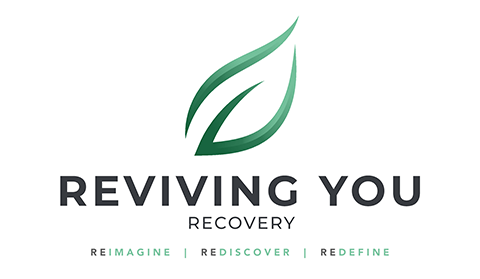Substance Abuse – Warning Signs and Symptoms

If you suspect your loved one is struggling with substance abuse, you’re not alone. In 2022, an estimated 48.7 million Americans qualified for a substance use disorder diagnosis. That means 17.3 percent of the adult population, or almost 1 in 4 Americans, has a substance abuse problem. Issues with substance abuse go on to cause mental health problems, financial problems, interpersonal relationship problems, and significant physical health problems. Getting help can give you the freedom to step away from relying on substances, improve quality of life, and step away from the risks associated with ongoing substance abuse.
However, that often starts with acknowledging you have a problem and for many people, that’s a big step. If you expect that you might be drinking too much, it’s always a good idea to talk to your doctor. Even if you’re not sure. If you expect that your loved one is drinking too much or using an illicit drug, taking that concern and talking to them about it is always going to be important. However, the following warning signs and symptoms of substance abuse might help validate that concern before you approach your loved one.
Warning Signs of Substance Abuse
For most people, the warning signs of substance abuse will look relatively similar no matter what substance they are abusing. That’s because the mental health effects of substance abuse are often very similar no matter what the substance. However, there will always be cases where the pattern doesn’t fit. Therefore, you’ll want to look at more factors and to use your best judgement.
General warning signs of substance abuse:
- Changes to self-care or personal hygiene such as reduced showering or not changing clothes
- Sudden gains or losses in weight
- Consistent cold/flu symptoms
- Increased stress and paranoia
- Increased anxiety
- Binging the substance
- Hiding substance use
All of these symptoms usually line up to mean the person is using a substance to the point of not being in control of it anymore. Those symptoms can also break down further into behaviors that normally point to addiction.
Hiding Substance Use
Individuals who have a healthy relationship with drugs or alcohol do not hide that usage. However, that can be tricky with illegal drugs. E.g., any usage of methamphetamine is generally considered to be harmful (and it is). Cocaine can result in jailtime (and hospitalization) even if you only use it once. If someone is hiding substance abuse, they are ashamed of it, that means they know they shouldn’t be doing it for whatever reason and are choosing to do so anyway – which almost always means they have an unhealthy relationship with that substance.
Risk-taking
Most substance use entails some risk. Even alcohol can result in rare sudden death syndrome even in small quantities. There’s risk in everything. But, if someone is using a substance in a scenario where they know it is illegal, that others will not approve, or in a situation where it could result in risk to yourself or others (e.g., driving, at work, operating machinery, childcare) means that person is knowingly taking on risk in order to use. In any of those scenarios, that person is having trouble managing their substance usage levels, which means it’ a good time to talk to them about it.

Get Your Questions Answered Now

Prioritizing Substance Abuse
If someone is prioritizing a substance over other important things in their life, they have a problematic relationship with that substance. This can translate into multiple behaviors:
- Skipping meals so they get drunk faster
- Skipping meals so they can drink without gaining weight
- Choosing to stay home to use or drink instead of going to a social event
- Thinking about using or drinking all the time
- Going well out of their way to enable drinking or using
- Skipping important life events to drink or use
- Drinking or using before driving, school, or work
Essentially, if substance use is allowed to take over their life and replace other things – like hobbies, interests, free time, and food, it’s problematic.
Loss of Control
If you or your loved one is having trouble controlling substance use, it means you are abusing it. Loss of control can take a lot of forms. For example:
- Expressing desire to have one drink and then having more
- Drinking or using the point of blackouts or memory loss
- Expressing desire to quit and being unable to or relapsing
- Having trouble controlling intake (If I drink one, I drink six)
- Binging or drinking more than one drink per hour as a normal thing
In general, if someone is unable to control their intake of a substance, they have a problem with it. That means it’s important to get help and to make sure you get help from a third party, because if you can’t control intake, you also can’t quit safely. That’s especially important for drugs, because tolerance decreases when you stop using for a few days, which means that a formerly safe dose might not be safe anymore if you relapse.
Eventually, all of these symptoms are very major signs that something is going wrong. In every case, it’s going to be important to talk to doctor, to talk about stepping off of substances, and to look into getting therapy and counseling to help with not only managing symptoms of substance dependence but also to tackle the underlying causes behind substance use.
Overlaps Between Substance Abuse and Mental Health Problems
It’s important to keep in mind that there are significant overlaps between the symptoms of mental health problems and the symptoms of substance use disorder. This means that it can be difficult to tell when someone is struggling with mental health versus with a substance use disorder. In most cases, substance use disorders can also cause mental health problems, so the overlaps often mean that both are the issue. Eventually, the only real way to tell if someone is struggling with substance abuse is the amount they use or drink. If substance use is present alongside the other symptoms, then that person likely has a problem with substance abuse.
Getting Help
Getting help for substance abuse generally starts with a conversation and with acknowledging that things are going wrong. Talking to someone should generally mean expressing concern for them, their health, and their mental health, discussing that you’d like them to get help, and making it about them and their recovery. Normally that starts with a trip to the doctor and having an honest and open discussion about substance and substance abuse, reasons behind substances, and difficulty using it. That will most often turn into a recommendation into a rehab program or a treatment facility offering clinical treatment. Going through your doctor first means you’ll benefit from maximum coverage from your insurance, which is also generally an important part of treatment.
Eventually, if you want someone to decide they need help, you have to do so by being supportive, by making it about them, and by making it about their health and their recovery. Not everyone will be ready to get help immediately. But, if you know your loved one is struggling with substance abuse, you know that they need it and can keep asking, offering options, and asking them to talk to their doctor. Good luck with treatment and getting help.

We Accept Most Insurances
We are in network with:









We know insurance coverage can be a source of uncertainty for people. We make sure you have all the information necessary. The great news is health insurance can potentially cover the total treatment costs. If you don't have insurance, we offer cash payment options for our treatment programs and are committed to working with clients regardless of financial situations.
